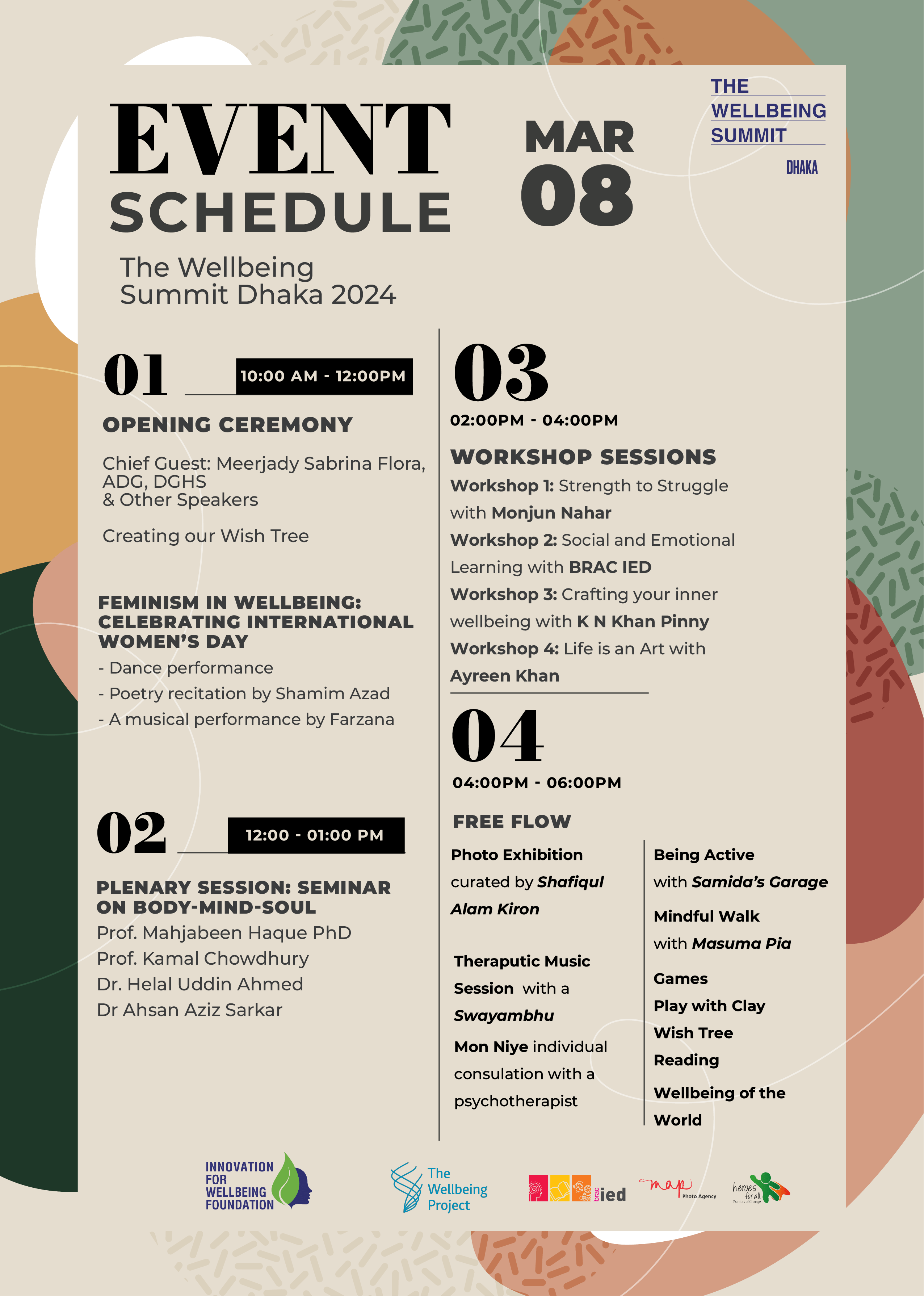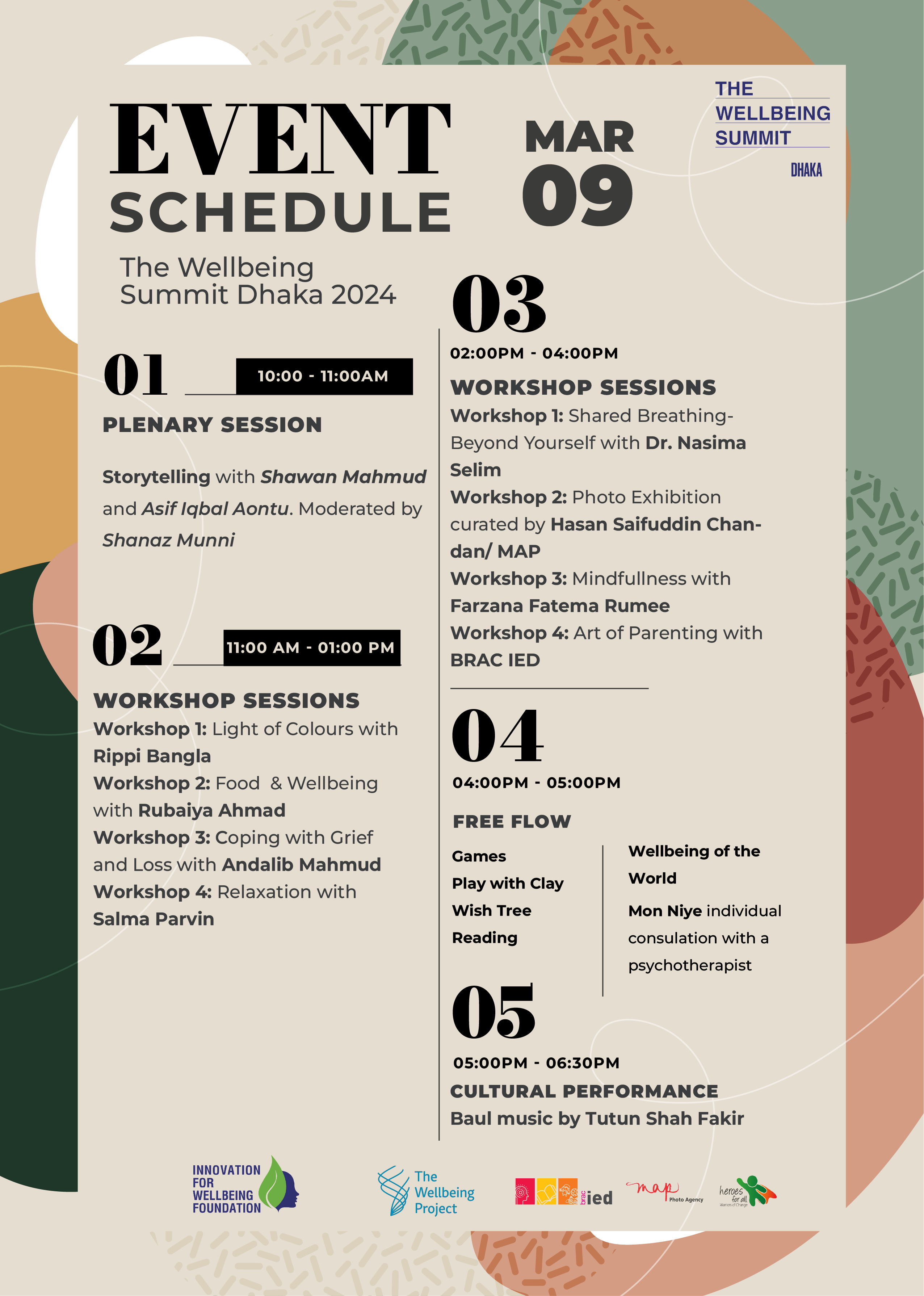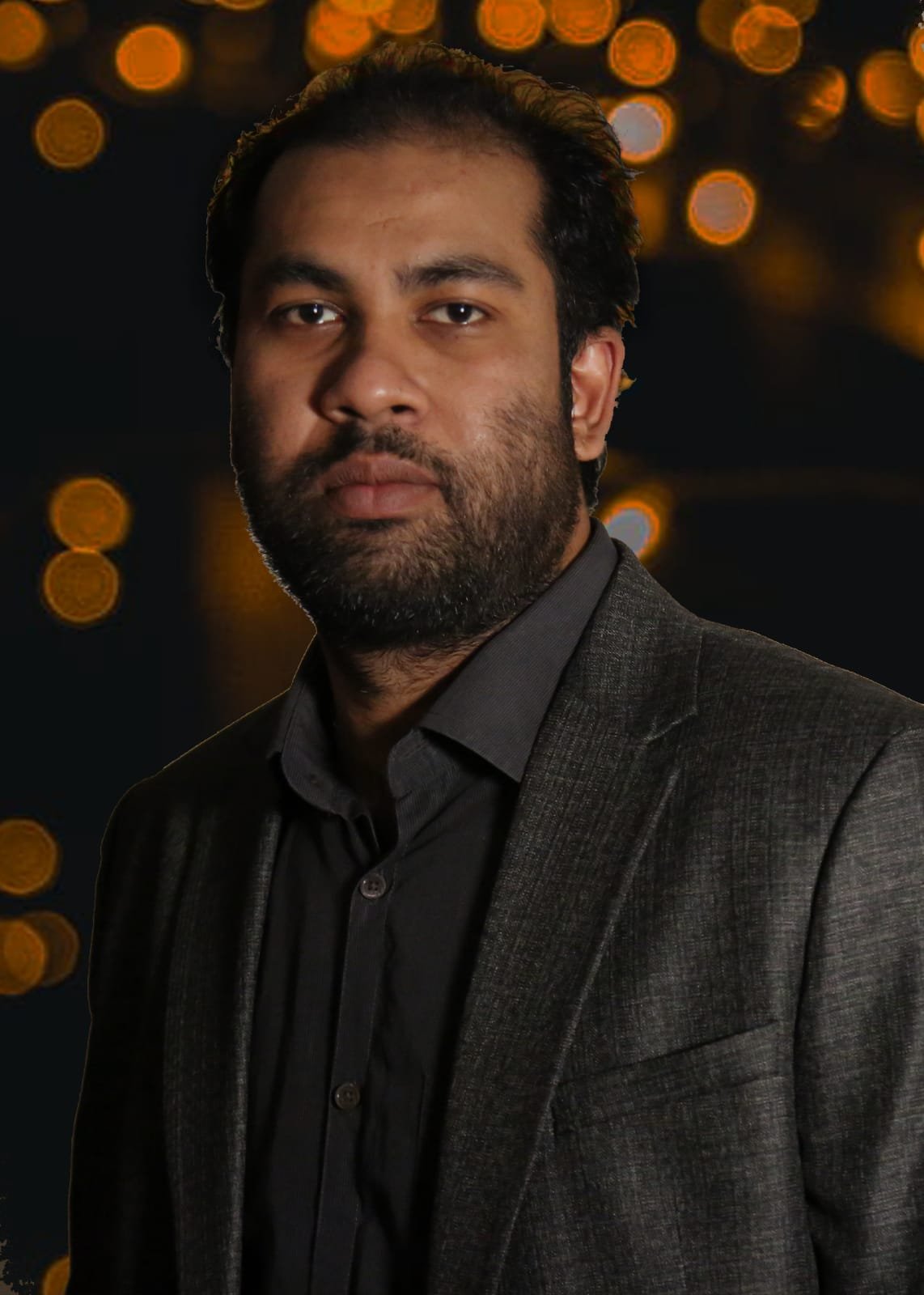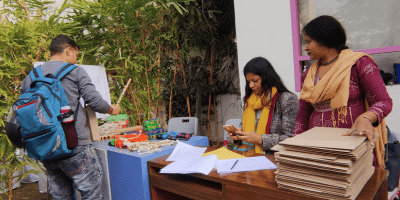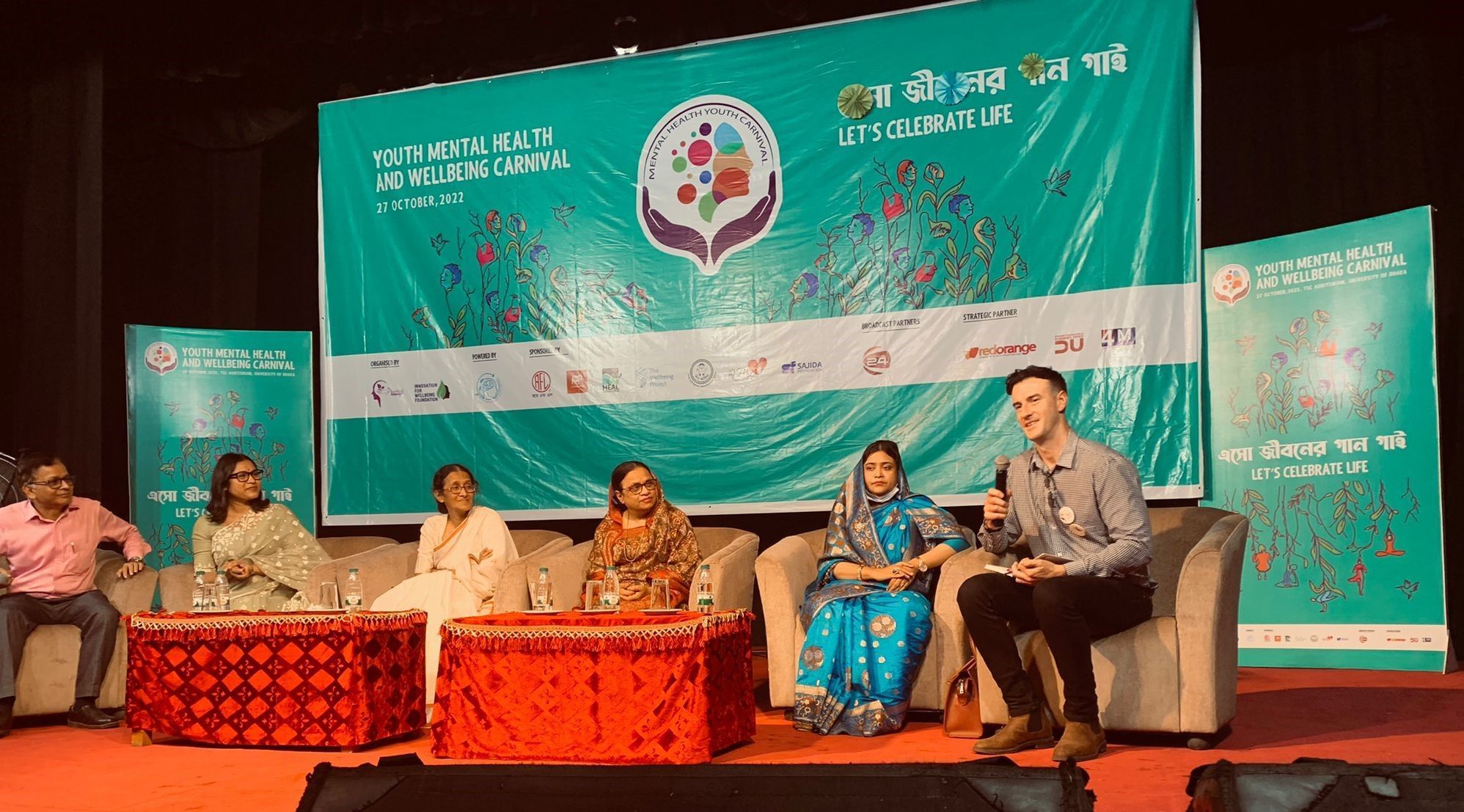
The Wellbeing Summit Dhaka 2024 The Wellbeing Summit Dhaka 2024
Regional Wellbeing Summits
ABOUT THE SUMMIT
“Projonmo theke Projonme: Generation to Generation”
Connecting land, language, and life: Bangladesh hosted the first regional Wellbeing Summit in Asia! The Wellbeing Summit Dhaka brought together 230 changemakers together over two monumental days to activate a culture of inner wellbeing in the local social change sector. With a driving focus to explore wellbeing for all – from Projonmo theke Projonme, or Generation to Generation – this exciting gathering convened diverse actors, creating a platform to enable transformative action in Bangladesh.
Changemakers were invited to join this transformative event which will help them connect their inner wellbeing with their work as actors for positive social impact. Inspiring talks, storytelling, the arts, therapeutic workshops, and classic chayer adda – tea-time talks – insightfully explored themes such as feminism, financial wellbeing, human flourishing, nutrition, and intergenerational trauma. Attendees were able to practice a diverse range of activities to activate their inner development and wellbeing. A compelling arts programme also invited them to approach these topics through the emotional and intellectual language of the arts. The Wellbeing Summit Dhaka share a common message: if we can ensure wellbeing, we can perform better – because wellbeing inspires welldoing.
Connecting the Land, Language, and LifeConnecting the Land, Language, and Life
Relive the Spirit of the Summit
DAY 1 Highlights
DAY 2 Highlights
TWO DAYS, ONE CENTRAL FOCUS TWO DAYS, ONE CENTRAL FOCUS
Explore the programme
How Do We Reach Wellbeing for All, From Generation to Generation?
The programme took changemakers on a journey between individual and collective wellbeing, exploring themes such as:
- Feminism, gender equality, and gender-based violence
- Intergenerational trauma in Bangladesh, including historical trauma from the 1971 Liberation War
- Cultural celebration and preservation
- Childcare and parenting
- Rest, relaxation, and healing
- Physical health, nutrition, and exercise
- The national Special Initiative for Mental Health
Projonmo theke ProjonmeProjonmo theke Projonme
EXPLORE STORIES FROM THE SUMMIT
A Special Celebration of Feminism
The Wellbeing Summit Dhaka opened on International Women’s Day, bringing a special celebration of feminism to the event. Sessions and art performances reflected on women’s empowerment and the role of women in Bangladeshi society. Delegates were also invited to wear quinsentially Bangaldeshi sarees in purple, the color of Women’s Day, to mark the occasion.
The theme of celebrating feminism also extended a tribute to Mother Earth, with the entire event designed sustainably. Hand-made, upcycled, and second-hand materials — including banners and ribbons made from the cloth of recycled sarees — all of which were designed for circularity, decorated the lush green setting of Bangla Academy, inviting an down-to-earth atmosphere to the gathering.


KEY SPEAKERS & ARTISTS KEY SPEAKERS & ARTISTS
THE WELLBEING SUMMIT DHAKA THE WELLBEING SUMMIT DHAKA
In The News
Read and watch local coverage of the first Regional Wellbeing Summit in Asia.
HOSTED BY
Innovation for Wellbeing Foundation
WITH SPECIAL THANKS TO THESE GENEROUS SPONSORS, FUNDERS, AND PARTNERS
4MTV USA, BRAC University, Heroes for All, Liberty Media Group, MAP Photo Agency, Quazi Consultants, and The Wellbeing Project
CONNECT WITH TWBS DHAKA
Don’t miss a beat! Stay up-to-date with The Wellbeing Summit Dhaka.
FOLLOW AND JOIN OUR JOURNEY!

